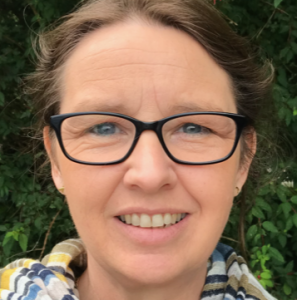Recognising the need for patients in health data research
By Marialuisa Cursino
CO-CONNECT, Covid curated and open analysis and research platform, prides itself in placing patients and members of the public at the very centre of research.
From the very start, patients and members of the public were invited by our principal investigators to give their input, share their lived experiences and influence the research developments.
CO-CONNECT is an open and curated platform and its initial stage of development. All Work Packages have been working together to ensure pseudonymised health data is available to the research community.
Ensuring that patients and members of the public feel included in a project like CO-CONNECT is less straightforward, yet more rewarding. The work carried out by the projects research team is complex in nature. Ranging from bioinformatics to software development and data governance. Moreover, the stakes of the project are high, as CO-CONNECT’s data partners include the Office for National Statistics, Public Health England, NHS Digital and many more.
CO-CONNECT’s Digital Content Specialist, Malu Cursino, spoke to the Patient and Public Involvement (PPI) leads about their experience in the project.
Meet the team



Antony Chuter and Jillian Beggs are CO-CONNECT’s PPI Co-Investigators. Jill and Antony are responsible for curating the rapport between the principal investigators and the patient user group (PUG) members.
Dr Tracy Jackson, PPI Coordinator, is responsible for ensuring PUG members are included in the project from a range of perspectives. From the start of here role in August, Tracy has provided information packages for the PUG members and she has ensured there is a clear path of communication between patients and researchers.
When discussing what patient involvement and engagement means, Jill said: “Patient engagement is actually the voice of the people that don’t get heard, carers in particular, they are often of the forgotten ones.”
Acknowledging that carers are underrepresented in research studies like CO-CONNECT, the project – and its distinct work packages – has focused its energy and resources in accommodating all members of the team. These adaptations range from ensuring our team meetings are accessible, using lay terms and speaking in plain English whenever possible, and fitting the main meetings around the whole team’s schedule.
Antony expressed his content and gratitude to the entire team. He has worked in a similar role in many other projects, and CO-CONNECT stands out to him because despite the complexity of the project, everybody has a say and is able to contribute towards the project’s developments.
Antony added: “I have really enjoyed working with Jill.”
With a commitment to highlighting underserved voices in academia, Jill told us that: “If you’re a carer or the responsible relative for somebody who is in a care home at the moment, COVID-19 has been a particularly difficult time.”
She adds:“I feel very honoured to be involved in this. I am totally blown away at the pace that this project came together.”
Tracy has a wealth of experience working with PPI at the University of Edinburgh, from projects with focuses ranging between asthma and clinical trials. She told us “I really enjoyed working with patient members and I just couldn’t for the life of me understand why people wouldn’t include patient and public members in their research.”
The success of public and patient involvement and engagement in CO-CONNECT is testimony to the project’s team efforts in general, and Tracy, Antony and Jill in particular.
Malu has spoken to members of the patient user group and we will be sharing their perspectives soon.
Update
The thoughts and perspectives of more of our PUG members can now be heard in our video, Patient and Public Involvement: What out PUG has to say

